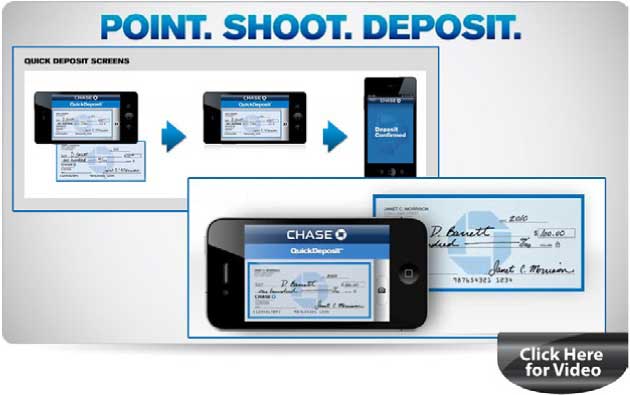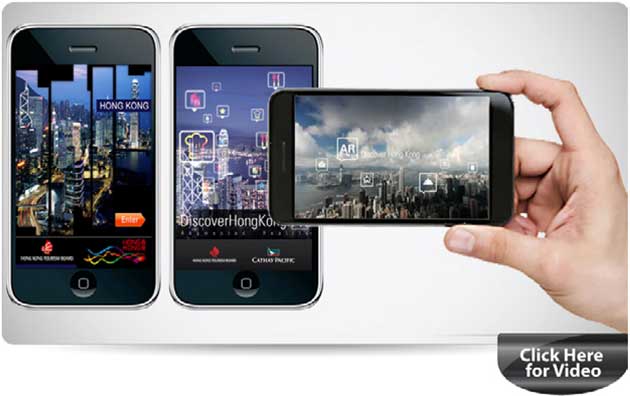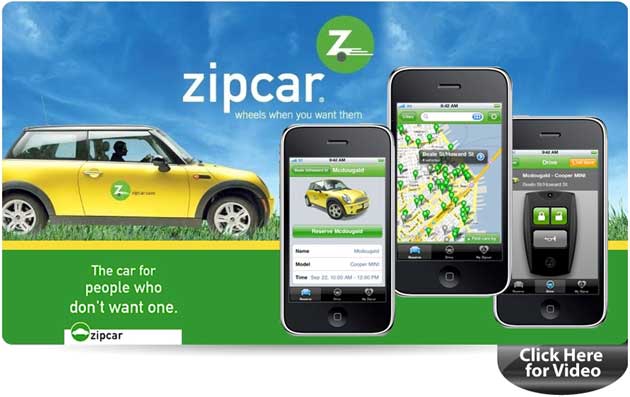Part 1 of this series introduced the incredible innovation opportunity that mobile heralds for today's marketers. Part 2 explored innovating brand engagement through mobile. Part 3 illuminated ways to innovate sales channels through mobile. And, last week, in Part 4, I focused on innovating product offerings through mobile.
This week, in the fifth segment of the series, I cover innovating customer experiences through mobile.
Marketers go to extraordinary lengths to acquire customers. And customer-courting hits all the hot buttons—deep discounts, special upgrades, and extra benefits—customers are made to feel special for doing business with companies. But once prospects have been converted into customers, marketers must focus the majority of their resources on acquiring more customers.
Yet the majority of complaints from customers don't pertain to the buying process; their anger is sharply focused on the subsequent experience. (Just search Twitter for any major brand; the frustration from customers is on full display.) Poor experiences lead to customer attrition, which presses marketers to focus on acquiring yet more customers to make up for the high rates of churn. It's a numbers game that plays out every month, with the hopes of more customers gained than lost.
But what about focusing on ways to innovate the customer experience as a way to decrease customer attrition and drive additional purchases? Especially since keeping customers is far less expensive than courting new ones... why not focus on increasing the lifetime value of customers by ensuring they feel valued, both pre- and post-purchase?
Mobile is a boon to the customer experience, because mobile provides myriad ways for marketers to delight customers and improve their experiences in ways previously unavailable. Specifically, marketers should map mobile's capabilities and tools to their customers' journey—before, during, and after the sale—to identify innovative ways to streamline customer interactions, remove friction from customer-centric processes, and deepen the overall brand experience for customers.
Let's look at examples of sophisticated organizations using mobile apps, mobile augmented reality, and other mobile technologies to innovate their customers' experiences through mobile.
Chase: Wielding Mobile to Produce a Friction-Free Virtual Banking Experience for Customers
Banking is an essential practice for businesses and consumers alike, but many of the processes are inconvenient; they require customers to interrupt their daily routines and go to a physical venue to conduct their banking transactions. Sure, the ATMs of the '80s and electronic banking systems of the 90s helped streamline many banking processes. But friction still exists; even in the 21st century, physical checks still exist, and they require customers to stop everything, leave where they are, and go to the bank to deposit funds.
We are rapidly evolving to an age where currency is more data than cash (or coin), so why not apply mobile's capabilities and tools to streamline this process for customers? That's precisely what banks, including JPMorgan Chase, have done through mobile to improve the customer experience. Through Chase's "Quick Deposit" app, customers can—at any time of day, and from anywhere—make their deposits through their mobile devices:
Customers simply launch the app, scan the front and back of endorsed checks, and, "auto-magically," their mobile phones transform into virtual banking tellers. No need for customers to interrupt their daily routines to go to the bank for deposits, and no delays for customers, beyond the normal time it takes for a check to clear. Thus, a process once riddled with friction is now quick and easy.
Chase has innovated the customer experience through mobile because it has streamlined a seemingly simple process that, for far too long, was far too complex for its customers.
How Chase Bank has seized the mobile innovation moment:
- Before Mobile? Banking customers had to interrupt their daily routines to visit the physical bank to deposit physical checks.
- After Innovation? Banking customers enjoy a seamless customer experience—by depositing their physical checks anytime, anywhere, with their smartphones morphing into virtual banking tellers.
Discover Hong Kong: Wielding Mobile to Provide a Better, Easier Travel Experience for Customers
Products and services aren't the only types of brands that can wield mobile to innovate the customer experience. Places are brands, too. The only difference is that customers are dubbed "visitors," whether consumer tourists or business travelers. And just like companies, these places seek increased revenue from visitors to stimulate local economies.
Take Hong Kong's Tourism Board, in partnership with Cathay Pacific Airways, and how it innovated the customer experience through a brilliant strategy that used mobile to streamline how visitors navigated the city, all the while providing depth to the overall city experience for visitors:
First, think about traveling to new cities, and new countries, and all the information doing so requires of visitors to purchase, carry, and digest. Visitors need maps, travel booklets, even hired guides to help them explore a city to enjoy all the famed landmarks and hidden treasures. But with all that visitors need to buy and carry, and all that they need to read and learn, let's face it... traveling can be quite a chore.
Indeed, traveling is a customer experience that is screaming to be streamlined, and deeply improved, through mobile.
And innovating the experience is precisely the point of "Discover Hong Kong," an augmented reality mobile app that lets visitors use their smartphones as their personal interactive guides to discover the city's landmarks, cultural sites, travel routes, retail venues, and restaurants.
Through the app, visitors simply use their phone's camera as a viewer, with the app overlaying points of interest on their screens through digital markers that can be tapped for more information. Freed from maps and books, and using the mobile devices they already have on them at all times, visitors can discover more of Hong Kong much more easily, and they receive a deeper experience of the city.
How Hong Kong Tourism Board has seized the mobile innovation moment:
- Before Mobile? Visitors had to rely on purchased maps, books, and hired guides to navigate through the city.
- After Innovation? Visitors need rely only on one device—their smartphones—which is always with them to easily and effectively experience the city in a deeper way... and their smartphones morph into their personal travel guide.
Zipcar: Wielding Mobile to Transform the Confining Rental Car Process Into a Freeing, Fun Customer Experience
In a sweeping move that has innovated an industry that was desperately in need of a makeover, Zipcar has taken the highly confining, headache-inducing rental car process and transformed it into a customer experience that is filled with freedom (and fun!).
Through its revolutionary anytime-anywhere car-sharing model of "wheels when you want them," Zipcar provides its customers a network of on-demand cars—spread out all over several metropolitan areas—that can be rented for a few days... or just a few hours. Pricing is revolutionary, too, as zipcar members pay by the hour, with all gas and insurance included.
And Zipcar's model heavily taps mobile tools—across mobile apps, mobile websites, and SMS alerts—to make every component of the customer experience seamless and easy:
Customers use their smartphones, via Zipcar's apps and mobile websites, to locate the nearest Zipcars to their location at any time, from anywhere, to choose from any available car, to book a car rental, and to get directions to their rental. Moreover, once they've used their Zipcar card to initially open the car, their smartphones enable them to unlock the car. Members can also use the Zipcar app (or the company's mobile website) to extend or change their reservations—and they can use the app to honk the car's horn in case they need to locate it in a crowded parking lot.
In addition to mobile apps and mobile websites, Zipcar also provides SMS alerts for members as helpful reminders to turn their cars in on time, or to extend their reservations. In an anytime-anywhere world, Zipcar understands how to adeptly serve, delight, and engage the mobile customer who needs freedom from old-world models.
How Zipcar has seized the mobile innovation moment:
- Before mobile? Renting a car was a process fraught with constraints—with limitations across finding rental car agencies, strict contracts, and inflexible pricing.
- After innovation? Renting cars is now a seamless, car-sharing model filled with freedom—made even easier through mobile tools that enable customers to find, reserve, and unlock cars for a few days or a few hours.
Architecting Innovation: Wielding Mobile to Transform Customer Experiences
With a little imagination and a lot of focus on eliminating customer pain points and streamlining the customer journey, mobile provides a trove of opportunities to dramatically improve the customer experience.
But, however transformative, mobile is just the technology... the innovation lies in how companies strategically wield this remarkable medium to revolutionize their brands and businesses.
So the key question for marketers seeking to innovate the customer experience is this: How can you wield mobile's capabilities and tools to innovate the customer experience by streamlining customer interactions and removing friction from customer-centric processes, and thus deepen the overall brand experience for customers?
- Could you make tasks easier, like Chase Bank has done by turning customers' mobile phones into their personal banking tellers?
- Can you use mobile to make the entire customer experience better, like Hong Kong Tourism Board has by transforming visitors' smartphones into their own interactive city guides?
- Or might you tap mobile tools to dramatically transform an industry plagued with constraints into a freeing, fun customer experience, as Zipcar has achieved through its revolutionary anytime-anywhere car-sharing service?
Many such questions await you—but much innovation, too.
Next week, we'll continue to explore how to wield mobile to innovate more of the marketing ecosystem in Part 6 of this series: "Mobile Innovation Strategy No. 5: Innovating Value Propositions Through Mobile."
You'll discover how to wield mobile's capabilities and tools to innovate the overall value that brands provide to their target audiences—and as a way to reposition brands into bigger, broader market positions.







